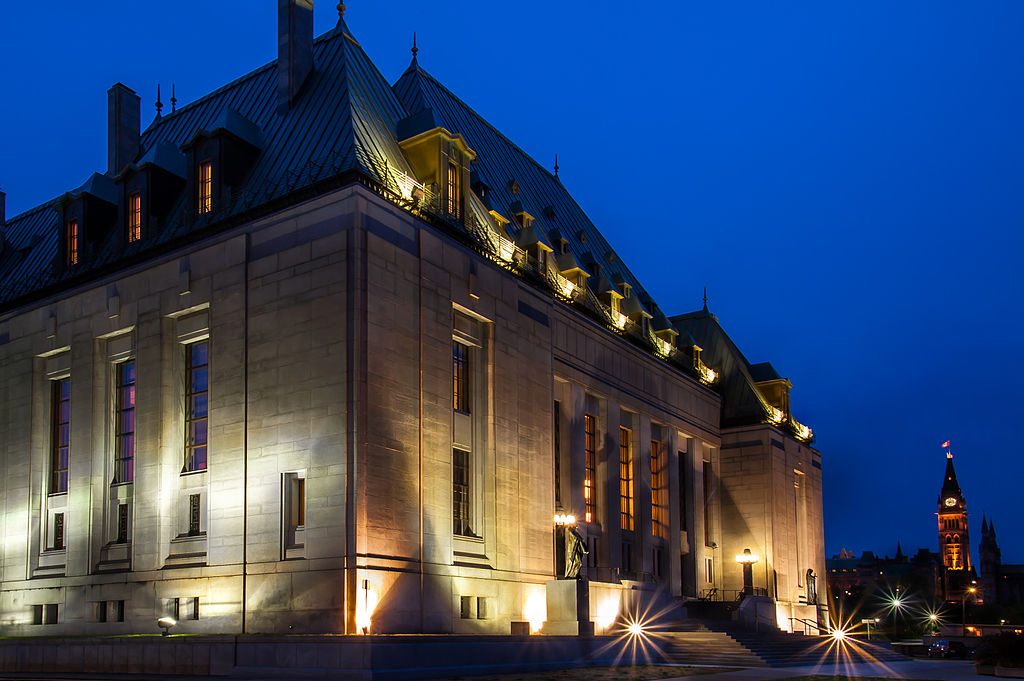Judges are Human Too: Introducing TheCourt.ca’s Judicial Biography Series

Unlike the often-contested nominations of judges to the Supreme Court of the United States (SCOTUS), nominations to Canada’s top court are a relatively routine affair. Although the recent nomination of Quebec jurist Nicholas Kasiser to the Supreme Court of Canada (SCC) generated some debate over the federal government’s decision to allow the Quebec government to have unprecedented input concerning the Prime Minister’s final nominee, most Canadian SCC nominations pass without so much as a ripple in the public consciousness – the 2013 nomination of Justice Marc Nadon notwithstanding.
The general disinterest in Canadian judicial nominations is seen by some commentators as an affirmation of our judiciary’s generally non-partisan disposition. Yet there are compelling reasons why Canadians should be more aware of the judges who make up our final court of appeal. In a 2018 post, for example, our colleague Leonid Sirota of the blog Double Aspect disputed the idea that the SCC’s interpretation of the Canadian Constitution is a purely mechanical exercise. As Sirota argues, the Court’s ongoing anonymity has led to a proliferation in recent years of unanimous “By the Court” opinions, obscuring rulings that significantly – even radically – depart from past precedents.
While many in the Canadian legal profession may not share Sirota’s view of the SCC’s approach to constitutional interpretation, his comments ought to give Canadians pause about how little they know about the individuals who have been tasked with, among other things, safeguarding constitutionally guaranteed rights and freedoms. As we prepare for the arrival of a new justice at the SCC, it seemed a fitting time to pause and take stock of the nine judges who currently sit on the highest court. To this end, TheCourt.ca is offering biographical glimpses over the coming weeks into the lives of the jurists who oversee one of Canada’s most important legal institutions.
Our purpose in publishing this series is not to suggest unfounded parallels between the SCC and its SCOTUS counterpart, as such an exercise would not check out in fact. Canadians can take pride in our relatively depoliticized and merit-based judicial appointment process and in the high calibre of judges who continue to make up our final court of appeal. Yet it would also be fallacious to assume that our top jurists do not approach their work with philosophies that have been shaped by their professional and judicial experiences. The justices of the SCC are not oracles whose worldviews or decisions are above the transparencies imposed by critical evaluation; our judges are, in a word, human, and as such are not above the rigours of informed criticism.
With this in mind, our hope is that this series will help our fellow law students, lawyers, and legal scholars to think more deeply about the judges who sit on the SCC. We believe that a more nuanced appreciation of this aspect of the SCC’s jurisprudence can only serve to bolster the confidence of Canadians in their judiciary. As Chief Justice Richard Wagner recently acknowledged, the days when judges could be appointed without giving any explanation of “where they came from, what they are doing, [or] how they do it” are over: “[P]eople need and deserve [this] information. There is no reason we should not give it to them. We have nothing to hide.”
Well said, Chief.





Join the conversation